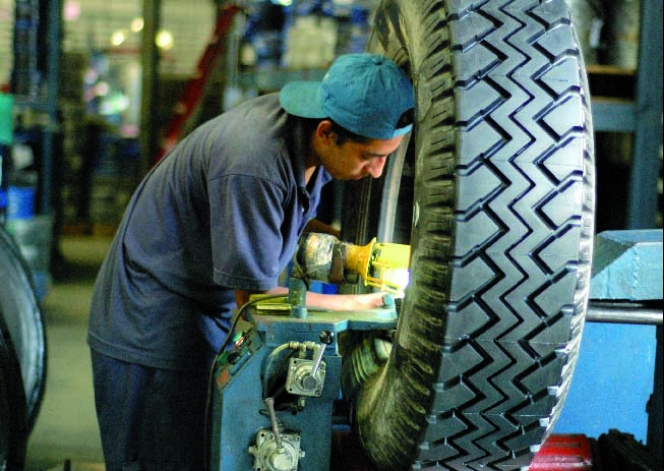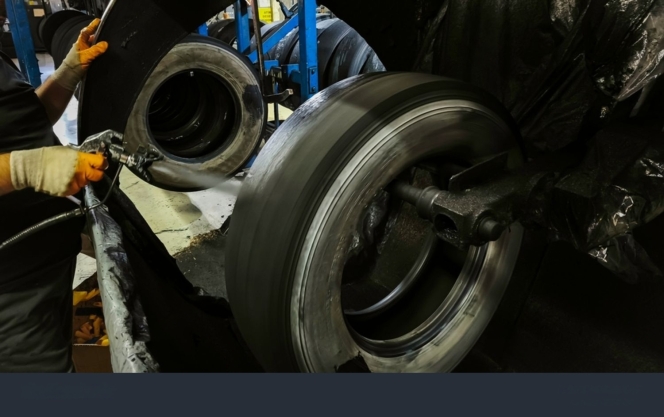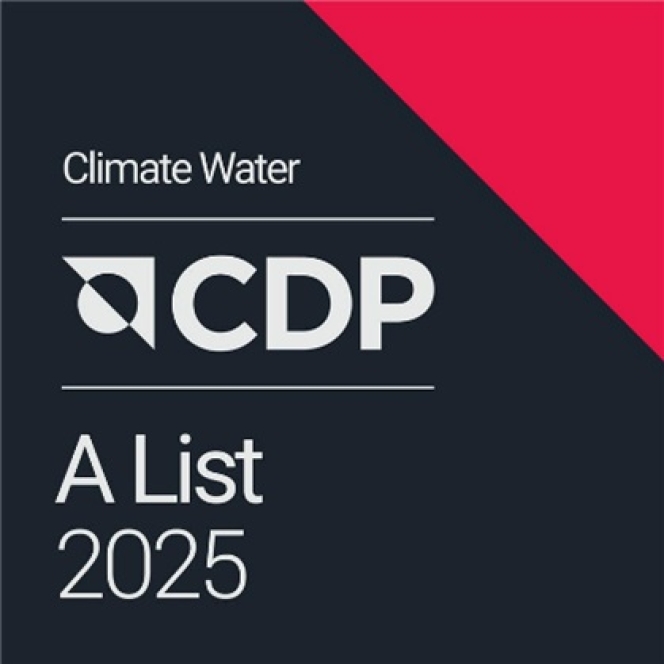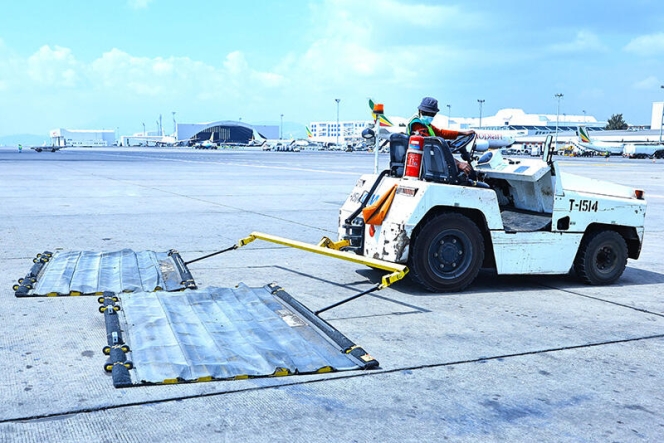Government Should Give Weightage To Retreaders In Waste Tyre Management Draft
- By Gaurav Nandi
- April 19, 2022

The National Green Tribunal of India had accused the country of failing to develop an efficient waste tyre management solution. It appealed to the Central Pollution Control Board to devise a strategy to address the alarming issue.
Tyre waste management has become a concerning affair for many countries. Even with extensive government guidelines and recycling efforts, the rubber wheels are disposed improperly, leading to a massive impact on the environment. Modern-day tyres are produced using a combination of natural and synthetic rubber, which fail to decompose after their life cycle. Often, they pile up in junkyards, landfills and other open spots, contributing massively to the rise in pollution levels. Stockpiled waste tyres release methane gas, leading to an increase in carbon footprint and accelerating climate change.
The Indian sub-continent is a heavy contributor to the menace, with its tyre waste accounting for only 6-7 percent globally, according to media reports. Apart from the domestic tyre manufacturing industry producing millions of tyres a year, it is estimated that around 300,000 tonnes of waste tyres are imported from countries like Australia for recycling and reuse (revealed in media reports). Many developed countries find shipping tyres abroad economically lucrative compared to domestic recycling.
The used tyres, including those produced domestically, are also used for producing reclaimed rubber, pyrolysis oil and crumb rubber. India stands as the second-largest producer of reclaimed rubber after China. Though India has been recycling and reusing tyres for over four decades, it is estimated that 60 percent are disposed of through illegal dumping, said a media report.
Furthermore, the pyrolysis oil industry has expanded in the country, with villages turning into backyard furnaces at night. Pyrolysis – a form of thermal decomposition – burns tyres to obtain low quality oil while leaving behind an air thick with acrid smoke and soil black with soot.
The National Green Tribunal of India had accused the country of failing to develop an efficient waste tyre management solution. It appealed to the Central Pollution Control Board to devise a strategy to address the alarming issue.
Attempting to curb the rising pollution through waste tyres and furthering the country’s commitment towards sustainability, the Ministry of Environment, Forest and Climate Change tabled a draft notification for regulations on extended producer responsibility (EPR) for waste tyres.
This policy extends the responsibility of the producer, or importer, to include the disposal of waste tyres and frees consumers from having to worry about responsible disposal.
The notification has been carefully prepared by a committee comprising representatives from the National Institute for Transforming India (NITI Aayog), Department for Promotion of Industry and Internal Trade (DPIIT), Ministry of Commerce & Industry, Central Pollution Control Board, National Highway Authority of India, National Environmental Engineering Research Institute, United Nations Development Programme (UNDP) and other private companies and associations involved in the subject.
The document categorises EPR obligation on the basis of weight (kg or tonnes). According to it, the manufacturers and importers of new tyres have to recycle 35 percent of all new tyres produced or imported in 2020-21 within fiscal 2022-23. The EPR obligations for 2023-24 will be to recycle 70 percent of tyres manufactured or imported in 2021-22. Further down the line, the business category in question will have to recycle 100 percent of tyres produced or imported in 2022-23 as part of EPR goals for fiscal 2024-25.
Following the realisation of the target till FY25, manufacturers and importers will have to recycle 100 percent of the tyres. However, the waste tyre importers must undertake 100 percent recycling of rubber wheels brought in from abroad each year. According to the new draft, importing waste tyres for producing pyrolysis oil has also been banned. The draft is slated to come into effect from FY23.
However, the document has no mention of retreaders, who are an integral part of tyre reuse and recycling. Speaking on the issue, Karun Sanghi, President, Tyre Retreading Education Association, explained, “The government, in its new draft notification, has tried to cover three aspects – recycle, reuse and reduce. It attempts to reduce the number of tyres produced to bring down wastage. But in India, reducing the production numbers is tough as the transport sector is expanding. The government is improving the roads to increase tyre life, so the numbers will not be affected massively.”
Commenting on whether retreaders are not an integral part of tyre waste management, the industry veteran explained, “The interpretation of the policy decides whether retreaders are an important part or not. The government believes that tyres are produced and then recycled to obtain crumb rubber, reclaimed rubber, pyrolysis oil and carbon black. The government is trying to bring a law to recycle all tyres through this notification. But if the government wants to improve the environment, then the draft has to include the reuse of tyres. If the tyres produced can be reused, more tyres will not be manufactured, and the overall impact on the environment will be less.”
“The government feels that retreading is an intermediary step, and tyres will eventually come for recycling. Hence, it wants the OEMs to take full responsibility,” he added.
“The government has iterated about reusing tyres, but in the current policy, it has not laid much emphasis on the concept as this process is mainly given shape by retreaders. And the last part of the policy talks about recycling. But what retreaders feel is that reuse is an integral part to gain sustainability, and the government should give weightage to it,” he added.
Commenting on the association’s attempt to include retreaders within the draft’s ambit, the managing director of Tyresoles said, “We have been in talks with the government ministry but have not received any final answer on the issue.”
“The current draft notification will help the country as it will make tyre companies responsible for waste disposal. So, tyres will have to be converted into crumb rubber, reclaimed rubber etc. So, the companies will improve the environment,” explained Sanghi.
Explaining the draft’s ban on imports for deriving pyrolysis oil, he said, “Producing pyrolysis oil from imported tyres hurts the country’s sustainability goals as the indigenous tyre waste is neglected.”
“The retreading market is not performing well as of now. Lockdowns have eased, but vehicles have to move for six months for tyre wear. So, we will have to wait for a couple of months to realise market performance. It will pick up after six months,” he contended while answering a question pertaining to the future of retreading.
- INDIAN TYRE INDUSTRY
- TYRE RETREADING
- BIS STANDARDS
- IS 15704
- ECE R109
- CIRCULAR ECONOMY
- MSME CHALLENGES
- AUTOMOTIVE REGULATION
- CARBON REDUCTION
- FREIGHT
- LOGISTICS
Retreading Hangs In Balance Over Regulatory Conundrum
- By Gaurav Nandi
- December 30, 2025

A population of over 1.4 billion people catapulting into the world’s third largest automobile market with four million trucks plying across a road network of 6.3 million kilometres supported by a USD 13.4 billion tyre market and a mining sector contributing around 2–2.5 percent of the country’s GDP demonstrate the strength of India’s automobile, freight and tyre sectors.
The story doesn’t end there as the Central Government adopts a strategic approach on reducing carbon emissions across these verticals, especially automobile and tyres, with targets such as the Net Zero Carbon Emissions by 2070, battery electric vehicles target by 2030, zero-emission truck corridors, Extended Producer Responsibility for the tyre sector; the list just goes on.
Amidst all such statistics and targets, a silent spectator remains the old and varied sector of tyre retreading. In a recent news story reported by Tyre Trends, the Indian Tyre Technical Advisory Committee (ITTAC) had made a proposal to Tyre Retreading Education Association (TREA) for mandating certain standards that will improve the quality of retreads. ITTAC has made recommendations to the BIS committee. TREA is part of the same committee. ITTAC and TREA are recommending different standards.
These standards included BIS retread standards, namely IS 15725, IS 15753, IS 15524 and IS 9168. The ITTAC had partially aligned Indian requirements with ECE R109, the European regulatory benchmark.
In a reply to the proposal, which was accessed by Tyre Trends, TREA urged the Indian Tyre Technical Advisory Committee to seek a deferment or non-applicability of BIS standard IS 15704:2018 for retreaded commercial vehicle tyres, warning that mandatory enforcement could cripple the sector.
In the letter, TREA argued that IS 15704:2018 is largely modelled on new tyre manufacturing norms and is technically unsuitable for retreading, which is a restoration and recycling process.
The standard mandates advanced laboratory tests such as spectrometer-based rubber analysis, endurance testing and compound uniformity checks, requirements that most retreading units, particularly small and medium enterprises, are not equipped to meet
The association highlighted that even large retreaders lack the infrastructure and skilled manpower needed for BIS-grade testing, while the sheer number of retreading units would make inspections and certifications operationally unmanageable for regulators.
TREA warned that compliance costs linked to machinery upgrades, audits and quality control could force 70–80 percent of units to shut down, leading to job losses, higher fleet operating costs and adverse environmental outcomes due to reduced recycling
Instead, TREA proposed that BIS prioritise retreading-specific standards such as IS 13531 and IS 15524, which focus on materials, process control, safety and quality consistency.
The body has also called for a phased transition roadmap, MSME support and industry training before any stricter norms are enforced, stressing that abrupt implementation would undermine the sector’s role in India’s circular economy.
The conundrum
India has a total of 36 administrative divisions comprising 28 states and 8 union territories. The tyre retreading sector has been continuously supporting circularity goals since the early 1970s across the world’s largest economy without getting mainstream recognition.
Even after five decades in service, the industry battles different bottlenecks including fragmentation, manpower shortage, tax pressures brought about by the recent GST revisions and now the implementation of such standards, just to name a few.
The sole practice that can simultaneously reduce carbon emissions from tyres and extend tyre life is assumed the nemesis of an ‘infamous and dangerous practice’ in some states of the country.
However, the industry has been drawing its techniques and quality parameters from the world’s oldest retreading economy, Europe.
“Big retreaders in India already have the necessary processes in place that conform to IS 15524 standards. However, as the standard is not yet mandated, we have voiced support for it because it is process-oriented and outlines how retreading should be carried out, including buffing and building procedures,” said TREA Chairman Karun Sanghi.
He added, “This standard focuses on how the work is done rather than imposing product-level testing that cannot be practically implemented. The current debate on IS 15704 stems from it being fundamentally incompatible. The standard includes requirements such as sidewall marking and destructive testing of retreaded tyres, which are impractical in a retreading environment where each tyre differs in brand, size, application and usage history,” he added.
Destructive testing, he argued, assumes uniform batch sizes. In retreading, where every casing is unique, testing even a single tyre would mean destroying finished products without yielding representative results. Applying such a framework would effectively require the destruction of every tyre in a batch, making compliance unviable.
“We have submitted our response to ITTAC and are awaiting feedback from the committee. We remain open to continued dialogue and will engage further once the committee responds to our submission,” said Sanghi.
According to him, a typical retreader processes about 300 tyres a month across multiple brands including MRF, JK Tyre, Apollo and Michelin and applications ranging from buses and trucks to mining vehicles. These casings vary widely in load cycles, operating conditions and duty patterns, often across several models from the same manufacturer.
The committee has cited European standard ECE R109, but Sanghi points to structural differences: “Europe is a global retreading hub where tyre manufacturers such as Michelin and Bridgestone dominate operations, collect their own tyres, retread them and return them to fleets, making batch-based destructive testing relevant. A similar model exists in US, where large tyre companies lead retreading and largely self-regulate without a single overarching standard. The Indian scenario is different, especially with a fragmented market.”
He stressed that the industry is not opposed to standards but to those that cannot be practically applied, warning that adopting European manufacturing-oriented norms without accounting for India’s market structure and operating realities would be counter-productive.
The debate is no longer about whether standards are needed but whether they are fit for purpose. Without accounting for India’s fragmented retreading ecosystem, enforcing impractical norms could dismantle a circular industry in the name of compliance.
TGL Season 2 Kicks Off With Hankook As Founding And Official Tire Partner
- By TT News
- December 29, 2025

The second season of TGL Presented by SoFi, where Hankook Tire serves as the Founding and Official Tire Partner, commenced on 28 December 2025. This innovative league, a venture of TMRW Sports with backing from icons like Tiger Woods and Rory McIlroy, represents a strategic alignment for Hankook, uniting two entities driven by technological advancement. The partnership provides a global platform to reinforce Hankook's premium brand positioning across North America and worldwide through extensive visibility during broadcasts and at the state-of-the-art SoFi Center in Florida.
This unique venue embodies the league's fusion of sport and technology, featuring a massive simulator with a dedicated ScreenZone and a dynamic GreenZone. This area, equipped with a turntable and over 600 actuators, meticulously replicates real-world golf conditions indoors, creating an immersive arena experience. The competition itself is fast-paced and engaging, with teams of PGA TOUR players competing in Triples and Singles sessions over 15 holes. Innovative elements like the point-doubling ‘Hammer’, real-time strategy via ‘Hot Mic’ and a Shot Clock ensure a dynamic spectacle for fans.
The season opener presented a compelling narrative as a rematch of the inaugural finals, pitting the undefeated Atlanta Drive GC, featuring Justin Thomas and Patrick Cantlay, against a determined New York Golf Club squad led by Matt Fitzpatrick and Xander Schauffele. This match set the tone for an intensive season running through March, where six teams and 24 top golfers will compete. For Hankook, this partnership is more than signage; it is an active engagement with a global community, delivering a distinctive brand experience that bridges cutting-edge mobility and sport for enthusiasts everywhere.
Dunlop Secures CDP ‘A List’ Recognition For Climate Change And Water Security
- By TT News
- December 29, 2025

Dunlop (company name: Sumitomo Rubber Industries, Ltd.) has made its way to the annual A-List of CDP for climate change and water security. This premier designation, awarded for the first time to the company in the 2025 evaluation, recognises world-leading performance in transparency, risk management and environmental action. CDP’s annual assessment is a key benchmark for corporate sustainability across climate, water and forests.
This achievement stems from the Group’s integrated approach to material issues outlined in its corporate philosophy. It treats the interconnected challenges of climate change, biodiversity and the circular economy holistically, advancing concrete initiatives under its long-term ‘Driving Our Future’ sustainability policy.
On climate, the Group’s science-based emission reduction targets for 2030 are validated by the Science Based Targets initiative. Operational efforts include pioneering green hydrogen production at its Shirakawa Factory and developing tyres made entirely from sustainable materials by 2050. The company also works to reduce emissions across its supply chain, lowers tyre rolling resistance to improve vehicle fuel economy and extends product life through retreading.
For water security, the strategy is driven by localised risk assessments at global production sites. In seven facilities identified as high-risk, the goal is to achieve 100 percent wastewater recycling by 2050. Progress is already evident, with the company’s Thailand factory reaching full wastewater recycling in 2024.
These coordinated actions on multiple environmental fronts formed the basis for the Group’s simultaneous top-tier recognition in both critical categories from CDP.
Bridgestone Launches Co-Creation Initiative With Ethiopian Airlines Group
- By TT News
- December 29, 2025

Bridgestone Corporation has initiated a novel co-creation programme in partnership with Ethiopian Airlines and Ethiopian Airports, focused on enhancing aviation safety at Addis Ababa Bole International Airport. This marks Bridgestone’s first sustained three-way collaboration with both an airline and an airport authority, targeting the reduction of Foreign Object Debris on runways and taxiways to support safer and more reliable aircraft operations.
The project was prompted by tyre-related incidents linked to debris at the airport, which previously risked disrupting flight schedules. Leveraging its specialised system for inspecting used airline tyres and analysing debris data, Bridgestone assessed conditions at the hub and proposed a tailored action plan. The company provided continuous support by analysing debris distribution patterns, developing visual hazard maps, advising on efficient collection methods and conducting training to raise awareness among airport personnel.
These sustained efforts have yielded significant results, substantially lowering the rate of tyre damage caused by runway debris compared to levels before the collaboration began. This reduction has supported improved on-time performance for Ethiopian Airlines while advancing overall operational safety. Additionally, the initiative has encouraged greater use of retreaded tyres, promoting economic efficiency and environmental sustainability within the airline’s operations.
Looking ahead, Bridgestone and Ethiopian Airlines Group plan to deepen their co-creation efforts, aiming to generate further value for the aviation sector and broader society through continued innovation and partnership.
Retta Melaku, Chief Operating Officer, Ethiopian Airlines, said, "At Ethiopian Airlines, the safety of our passengers, employees and aircraft is a priority. We are pleased to collaborate with Bridgestone to further strengthen our efforts in reducing FOD at Addis Ababa Bole International Airport and ensure safe operations at the hub airport."
Getaneh Adera, Managing Director, Ethiopian Airports, said, "We remain fully committed to upholding the highest safety standards at Bole International Airport at all times. This significant achievement in reducing FOD is the result of our strong commitment for safe operations and close collaboration with Bridgestone. Through our co-creation activities, we are pleased to have realised safer operations with enhanced productivity and economic value."
Jean-Philippe Minet, Managing Director, Bridgestone Aircraft Tire (Europe) S.A., said, "By combining the learnings and insights from Ethiopian Airlines' operational issues with our analysis technology and know-how, we have deepened our co-creation to propose customised solutions. We are delighted to contribute to safe aircraft operations with peace of mind and to improved operational productivity through the co-creation of efficient FOD reduction on airport surfaces. Through further expansion and evolution of this solution, we will amplify the value of our ‘Dan-Totsu Products’, trust with our customers and value of the data for creating new value."







Comments (0)
ADD COMMENT